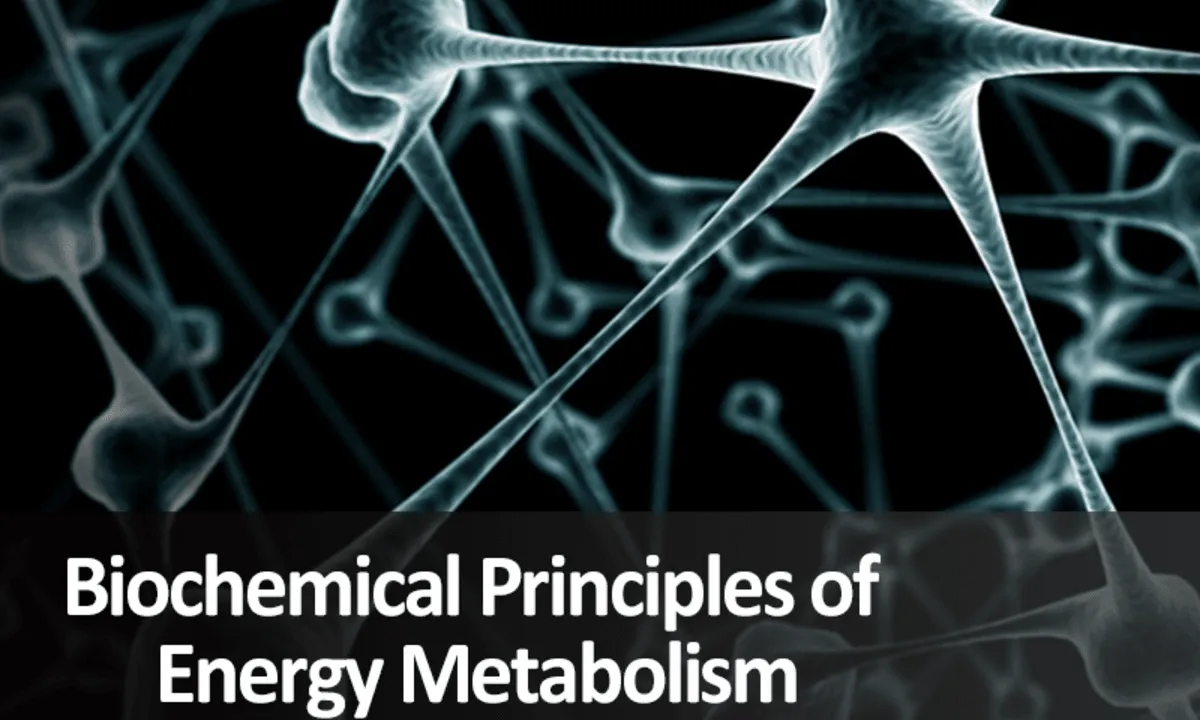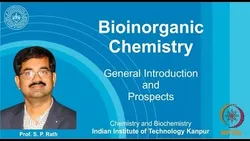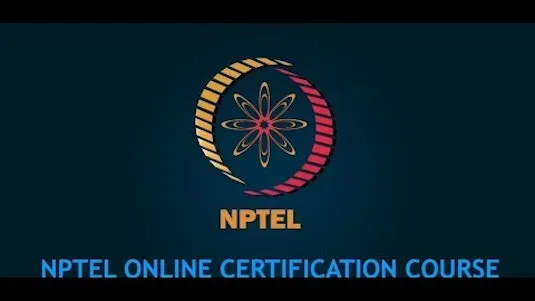
Biochemical Principles of Energy Metabolism 
This course covers the biochemical principles of energy metabolism, exploring how carbohydrates like glucose are used to extract energy. It examines the various biochemical ways of energy transformation and regulatory mechanisms of thousands of chemical reactions, and how these processes are essential for sustaining life. ▼
ADVERTISEMENT
Course Feature
![]() Cost:
Cost:
Free
![]() Provider:
Provider:
Coursera
![]() Certificate:
Certificate:
Paid Certification
![]() Language:
Language:
English
![]() Start Date:
Start Date:
24th Jul, 2023
Course Overview
❗The content presented here is sourced directly from Coursera platform. For comprehensive course details, including enrollment information, simply click on the 'Go to class' link on our website.
Updated in [March 20th, 2023]
This 7 week-course will provide an overview of the biochemical principles of energy metabolism. Students will gain an understanding of the concept of energy metabolism and the biochemical processes involved in energy production from glucose oxidation and glucose synthesis via photosynthesis. Additionally, students will learn about metabolic reactions related to fat and the regulatory actions among different organs. Finally, the course will cover dysregulated energy metabolism in pathological conditions such as diabetes and cancer.
[Applications]
Upon completion of this course, participants will be able to apply their knowledge of energy metabolism to understand the biochemical processes involved in energy production and regulation. They will be able to identify the metabolic pathways involved in energy production and how they are regulated. Additionally, they will be able to recognize the metabolic dysregulation in pathological conditions such as diabetes and cancer.
[Career Paths]
Recommended career paths for learners of this course include:
1. Biochemist: Biochemists study the chemical processes and substances that occur in living organisms. They use their knowledge of biology, chemistry, and physics to understand how cells, tissues, and organs work together to form living organisms. They also use their knowledge to develop new drugs, treatments, and diagnostic tools. Biochemists are in high demand in the pharmaceutical, biotechnology, and medical industries, and the field is expected to grow significantly in the coming years.
2. Clinical Biochemist: Clinical biochemists are responsible for the analysis of biological samples, such as blood, urine, and tissue, to diagnose and monitor diseases. They use their knowledge of biochemistry to interpret the results of these tests and provide advice to physicians and other healthcare professionals. Clinical biochemists are in high demand in the medical field, and the field is expected to grow significantly in the coming years.
3. Bioinformatician: Bioinformaticians use their knowledge of biology, computer science, and mathematics to analyze and interpret biological data. They use their skills to develop new algorithms and software tools to analyze large datasets, such as genomic and proteomic data. Bioinformaticians are in high demand in the biotechnology and pharmaceutical industries, and the field is expected to grow significantly in the coming years.
4. Biomedical Engineer: Biomedical engineers use their knowledge of biology, engineering, and mathematics to develop new medical technologies and treatments. They use their skills to design and develop medical devices, such as prosthetics, implants, and diagnostic tools. Biomedical engineers are in high demand in the medical field, and the field is expected to grow significantly in the coming years.
[Education Paths]
Recommended Degree Paths:
1. Bachelor of Science in Biochemistry: This degree program provides students with a comprehensive understanding of the chemical processes that occur in living organisms. Students will learn about the structure and function of proteins, enzymes, and other molecules, as well as the metabolic pathways that are involved in energy production and storage. This degree program also covers topics such as genetics, cell biology, and biotechnology. The development of this field is rapidly advancing, with new technologies and techniques being developed to better understand the biochemical processes of life.
2. Master of Science in Bioenergetics: This degree program focuses on the biochemical principles of energy metabolism. Students will learn about the biochemical pathways involved in energy production and storage, as well as the regulatory mechanisms that control these processes. This degree program also covers topics such as metabolic engineering, metabolic control analysis, and metabolic flux analysis. With the development of new technologies and techniques, this field is rapidly advancing, allowing for a better understanding of the biochemical processes of life.
3. Doctor of Philosophy in Bioenergetics: This degree program focuses on the biochemical principles of energy metabolism. Students will learn about the biochemical pathways involved in energy production and storage, as well as the regulatory mechanisms that control these processes. This degree program also covers topics such as metabolic engineering, metabolic control analysis, and metabolic flux analysis. With the development of new technologies and techniques, this field is rapidly advancing, allowing for a better understanding of the biochemical processes of life.
4. Doctor of Science in Bioenergetics: This degree program focuses on the biochemical principles of energy metabolism. Students will learn about the biochemical pathways involved in energy production and storage, as well as the regulatory mechanisms that control these processes. This degree program also covers topics such as metabolic engineering, metabolic control analysis, and metabolic flux analysis. With the development of new technologies and techniques, this field is rapidly advancing, allowing for a better understanding of the biochemical processes of life.
Pros & Cons

Well designed and interesting

Clear,concise,understandable,and demonstrative

Thoroughly enjoyable course Excellent explanations and diagrams Covers basics and current research topics Introduces common human metabolic pathologies

Not suitable for beginners

No course on RNA and DNA
Course Provider

Provider Coursera's Stats at AZClass
Discussion and Reviews
0.0 (Based on 0 reviews)
Explore Similar Online Courses

Learn to Speak - Conversational German for Beginners

Infrastructure Development PPPs and Regulation

Python for Informatics: Exploring Information

Social Network Analysis

Introduction to Systematic Review and Meta-Analysis

The Analytics Edge

DCO042 - Python For Informatics

Causal Diagrams: Draw Your Assumptions Before Your Conclusions

Whole genome sequencing of bacterial genomes - tools and applications

Principles of Biochemistry

Bioinorganic Chemistry


Start your review of Biochemical Principles of Energy Metabolism